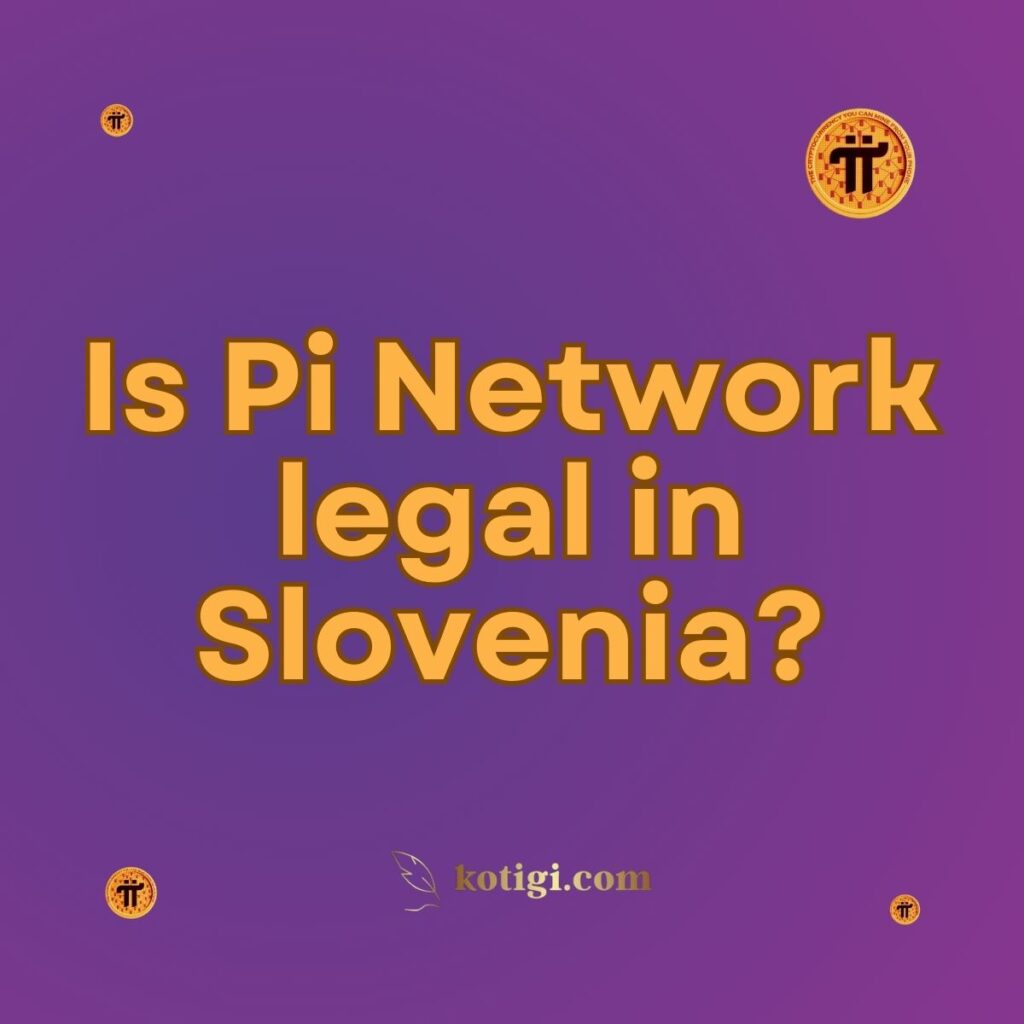
Is Pi Network legal in Slovenia?
Yes, Pi Network is legal in Slovenia. While the country does not have specific laws targeting Pi Network, the use of cryptocurrencies is allowed under Slovenian regulations, and users must comply with local tax and anti-money laundering (AML) laws applicable to digital assets.
Introduction
As the adoption of cryptocurrencies rises globally, questions about their legal status have become increasingly important. Pi Network, a rapidly growing cryptocurrency, has attracted attention in various countries, including Slovenia. Is Pi Network legal in Slovenia? In this article, we will explore Slovenia’s regulatory landscape regarding cryptocurrencies and how it impacts Pi Network users.
Cryptocurrency Regulations in Slovenia
Slovenia is regarded as one of the most progressive countries in Europe when it comes to cryptocurrency and blockchain technology. The government has taken a favorable stance toward digital currencies, encouraging innovation while ensuring that these new technologies are properly regulated.
Legal Framework for Cryptocurrencies
Slovenia has not established a comprehensive set of laws specifically aimed at regulating cryptocurrencies. However, digital assets, including Pi Network tokens, are legal and can be used in various ways, such as trading or mining. Cryptocurrencies are treated as property, and they are subject to general taxation laws, including capital gains tax.
The Role of Financial Authorities
Slovenia’s Financial Administration (FURS) plays an active role in monitoring cryptocurrency activities to ensure compliance with tax laws. While they have not imposed restrictions on cryptocurrencies like Pi, they ensure that all activities involving digital currencies are taxed appropriately and adhere to the country’s financial regulations.
Tax Treatment of Cryptocurrencies in Slovenia
In Slovenia, profits earned from cryptocurrency transactions are taxed under capital gains tax. For individuals, this means that any Pi tokens traded or converted into fiat currency are subject to taxation. It is crucial for Pi Network users in Slovenia to declare their earnings and ensure they comply with local tax laws to avoid penalties.
Pi Network’s Operations in Slovenia
Pi Network operates legally in Slovenia, as the country’s laws allow the use of digital currencies and blockchain-based projects. However, Slovenian users need to be mindful of local regulations, especially in areas related to taxation and AML compliance.
Growing Popularity of Pi Network in Slovenia
The user base for Pi Network is growing in Slovenia, with many Pioneers joining the platform to mine Pi tokens. The easy-to-use mobile mining app has resonated with users who are looking for accessible ways to engage with cryptocurrency. This growing interest is supported by Slovenia’s overall acceptance of blockchain technology.
Compliance with Slovenian Cryptocurrency Regulations
Slovenian Pi Network users are required to comply with local financial regulations, including AML laws. Pi Network’s Know Your Customer (KYC) process aligns with Slovenia’s legal requirements, ensuring that users are properly identified and that illicit activities, such as money laundering, are prevented.
Legal Considerations for Pi Network Users in Slovenia
While Pi Network is legal in Slovenia, there are several legal considerations that users must be aware of. These include adhering to tax obligations, following AML procedures, and staying informed about any regulatory changes.
Anti-Money Laundering (AML) Compliance
Slovenia has strict AML laws that apply to cryptocurrency users. Pi Network’s KYC verification process helps to ensure that users are legitimate, preventing illegal activities like money laundering. Slovenian users must complete the KYC process to participate in Pi Network fully, ensuring compliance with these important regulations.
Data Privacy and GDPR Compliance
As part of the European Union, Slovenia adheres to the General Data Protection Regulation (GDPR). This means that Pi Network, like any other digital platform, must comply with GDPR guidelines when collecting and processing users’ personal data. Slovenian users should ensure that their data is handled in compliance with these standards during the KYC process.
Tax Obligations for Pi Network Users
Earnings from Pi Network, whether from mining or trading Pi tokens, are subject to taxation in Slovenia. Users should keep records of all transactions and declare them to the Financial Administration (FURS) to comply with the country’s tax laws. Failure to report earnings can result in fines or other legal consequences.
Pi Network’s Future in Slovenia
As the cryptocurrency landscape in Slovenia continues to evolve, Pi Network has the potential to become a significant part of the country’s growing blockchain ecosystem. The government’s favorable stance toward cryptocurrencies suggests that Pi Network will continue to operate legally, but users must remain vigilant about complying with regulations.
Potential Regulatory Changes in Slovenia
As cryptocurrencies gain popularity, Slovenia may introduce more specific regulations regarding the use and taxation of digital assets. While the current legal environment is favorable, Pi Network users should stay informed about any future changes that could impact their participation in the platform.
Opportunities for Integration with Slovenia’s Blockchain Industry
Slovenia has emerged as a hub for blockchain innovation, with several blockchain startups and projects originating from the country. Pi Network’s unique approach to mobile mining could find synergies with the broader blockchain community in Slovenia, opening the door to potential partnerships and integration into the local digital economy.
How Slovenia Compares to Other Countries?
Slovenia’s progressive stance on cryptocurrencies sets it apart from many other countries. Comparing Slovenia’s regulatory environment with those of other nations provides valuable insights into Pi Network’s global operations.
Cryptocurrencies in Germany
Germany has taken a cautious yet open approach to cryptocurrencies, treating them as financial instruments. While Germany’s regulations are strict, Slovenia’s more flexible approach has allowed for faster adoption of blockchain technology.
Cryptocurrencies in the United States
The United States has a more fragmented approach to cryptocurrency regulation, with different states having different rules. In contrast, Slovenia’s unified national approach offers more clarity for users, making it easier for Pi Network to operate within its borders.
Conclusion
Pi Network is legal in Slovenia, with no specific laws prohibiting its use. However, users must comply with the country’s financial regulations, including tax obligations and anti-money laundering laws. Slovenia’s progressive approach to cryptocurrencies provides a favorable environment for Pi Network users, but it is essential to stay informed about any regulatory changes that could impact their participation in the future.
Key Takeaways
- Pi Network is legal in Slovenia, and users can engage with the platform without any legal restrictions.
- Cryptocurrency earnings are taxable in Slovenia, and users must report their earnings to the Financial Administration (FURS).
- Pi Network’s KYC process helps users comply with Slovenia’s anti-money laundering regulations.
- Slovenian users must adhere to GDPR when participating in Pi Network, ensuring that their personal data is handled according to EU data protection standards.
- The legal environment for cryptocurrencies in Slovenia is favorable, but users should stay informed about potential regulatory changes.




